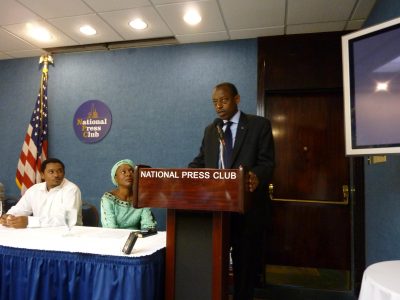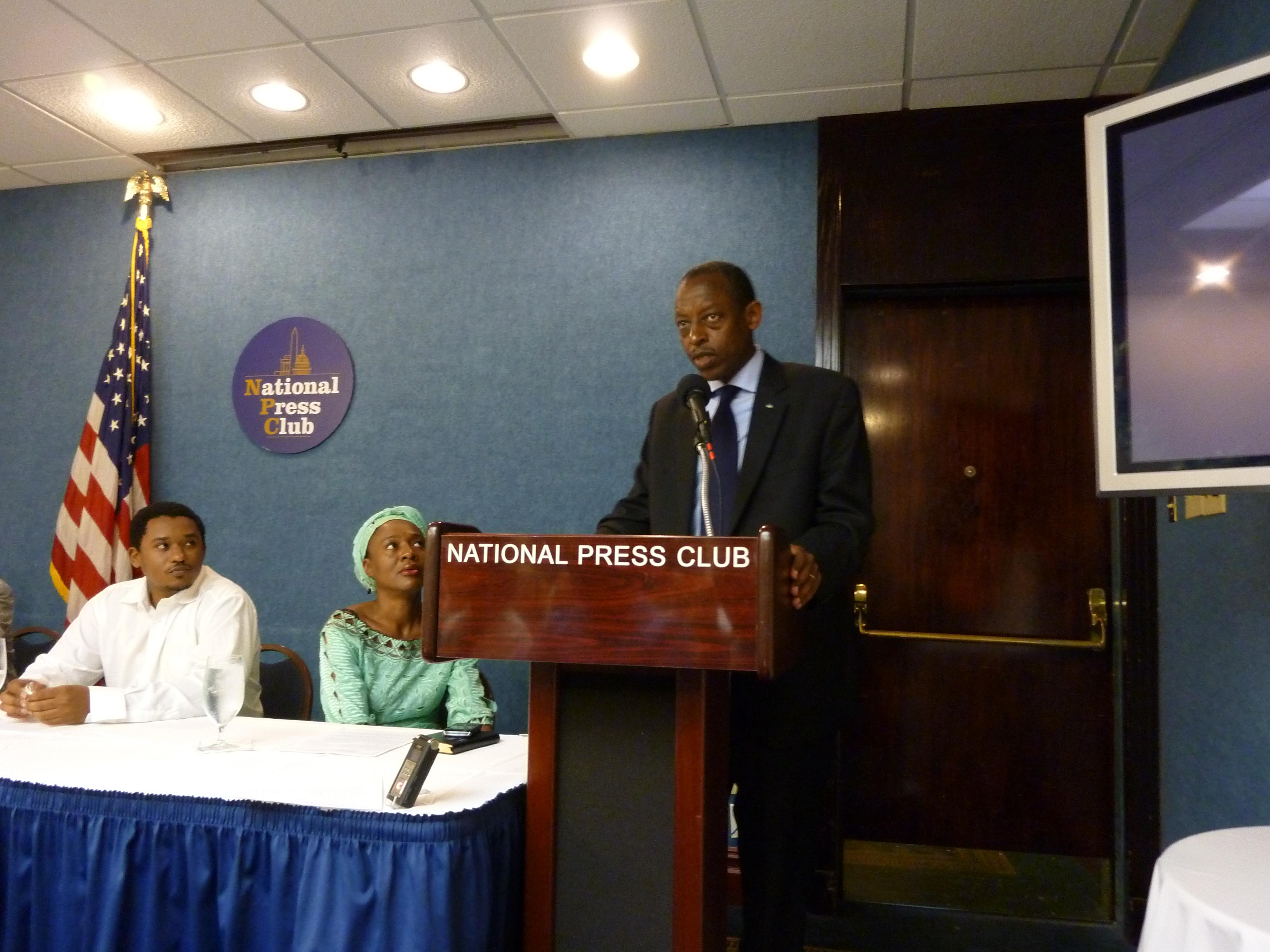A tense briefing Tuesday on Rwanda’s upcoming elections held at the National Press Club in Washington demonstrated that politics still evoke a strong emotional response from many Rwandans 16 years after their devastating genocide. Despite a series of new laws aimed at promoting reconciliation and inclusion, divisions in the young democracy continue to run deep over the prospect of reelecting strongman Paul Kagame as president.

The briefing was aimed at shedding light on the illegitimacy of Rwanda’s upcoming election on August 9th. In the past few months, the Rwandan government has grossly violated citizens’ rights to freedom of expression, association, and assembly. Local authorities prevented opposition parties, including the Democratic Green Party and the FDU-Inkingi, from registering by denying them permission to hold the required congressional meetings. The manipulation of the “Genocide Ideology Law”, adopted in 2008, has been used almost exclusively against political opposition leaders like presidential candidate Victoire Ingabire, portraying them as genocide sympathizers and imprisoning them.
Other opposition leaders, including Joseph Ntawangundi and Frank Habineza, have been threatened, beaten, and/or arrested. Independent journalists such as Didas Gasana, Charles Kabonero, and Richard Kayigamba have been imprisoned. Others who have vocally opposed the Rwandan Administration, such as Jean-Bosco Gasasira, have been forced to flee into exile after severe threats. Vice President of the Democratic Green Party André Kagwa Rwisereka was reported missing before his body was found mutilated. For a thorough, though still non-exhaustive, see the chronology of abuses or the submission for Universal Periodic Review by Human Rights Watch.
The briefing’s panel, consisting of human rights lawyer Peter Erlinder and Rwandan civil society advocates Claude Gatebuke and Pascal Kalinganire, began by spotlighting these abuses and denouncing the election as a “lie,” a “myth,” and a “sham” primarily because of the suppression of opposition. The unexpected arrival of the Rwandan Ambassador, however, radically changed the course of the dialogue. After being granted permission to speak, Ambassador James Kimonyo vociferously denied the panelists’ statements, vouching for the validity of the election process, and commending the Rwandan government for its many achievements.
Ambassador Kimonyo further incited controversy by personally attacking the panelists. Seemingly bent on avoiding dialogue and the topic of the elections altogether, he accused Paul Rusesabagina of Hotel Rwanda in absentia of financially aiding FDLR rebels in the DRC. Many of the FDLR are former Rwandan genocidaires, and thus the Ambassador smeared Rusesabagina as a genocide sympathizer, or guilty of “Genocide Ideology.” Erlinder, he charged, was guilty of the same crime by association. These accusations provoked a clamor from the audience, many of whom were members of the Rwandan diaspora community, and prompted defensive refutations that derailed the discussion of the elections to political bickering. While moderator Emira Woods attempted to steer the discussion back to the U.S. government’s role in the upcoming election, explosive outbursts and defensive debate characterized the remainder of the two-hour briefing.
While this tense dialogue represented a microcosm of the deep-rooted political tensions that have no platform on which to be voiced in Rwanda today, it detracted from the objective of the briefing – to call on the U.S. to be a more responsible global partner, not recognize illegitimate, undemocratic elections, and end its support of repressive strongmen.
